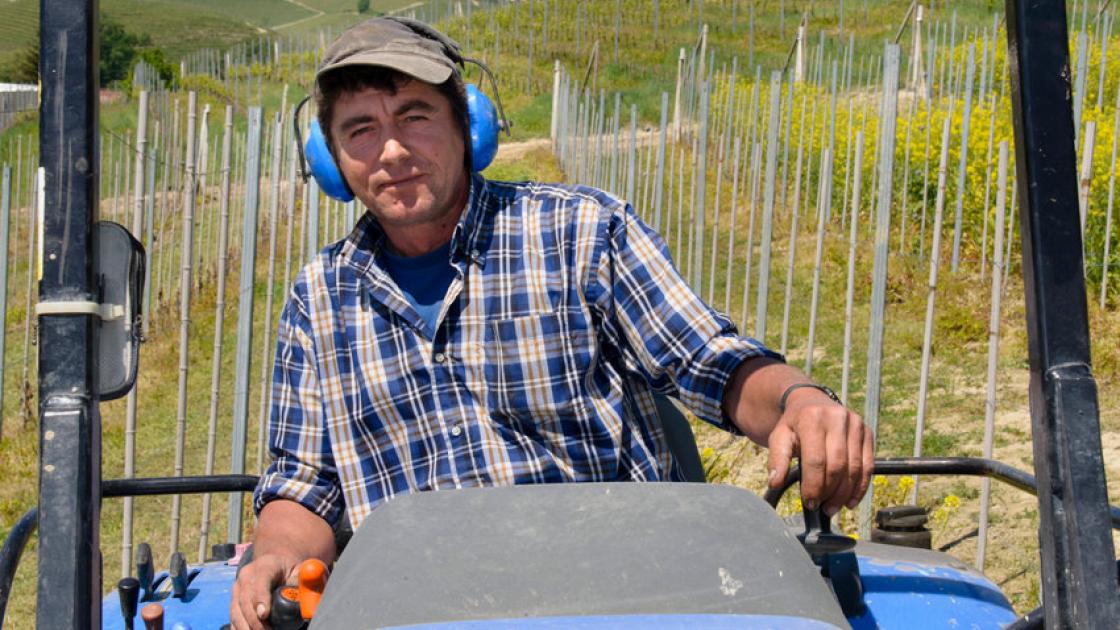
What was that? Preventing hear loss among farmers and agriculture workers
Repeated exposure to loud noises can damage the structures inside your ears that help you hear. Over time, this damage can cause irreversible hearing loss, which can negatively impact your quality of life, your personal relationships, profession, ability to communicate with others, mental health and even personal safety. Recent research even suggests that hearing loss is associated with an increased risk of dementia and social isolation.
As a farmer or agricultural worker, you probably already know how often you are exposed to hazardous noise levels during daily farm operations. Fortunately, there are safety precautions you can take to reduce your risk of hearing loss. Keep reading to learn more about what these precautions are and how to recognize hearing loss in yourself or your loved one.
Common causes of hearing loss on farms
Living and working on a farm exposes adults and children to a wide range of loud, repetitive and potentially harmful noises. Some of the most common sources of farm-related noise hazards include:
- Tractors
- Trucks
- Welders
- Air compressors
- Shop vacuums
- Combines
- ATVs
- Dirtbikes
- Irrigation pumps
- Grain dryers
- Livestock
- Chainsaws
- Firearms
Sound loudness is measured in units of decibels, or dB. According to the National Institutes of Health, sounds at or below 70 dB are generally considered safe, while sounds at or above 85 dB are likely to damage a person's hearing over time with repeated exposure. As a point of reference, an enclosed tractor cab exposes you to about 92 dB of sound, squealing pigs expose you to about 100 dB of sound and a working chainsaw exposes you to about 115 dB of sound.
In addition to how loud a sound is, two other factors can influence hearing loss risk, including how close a person is to the source of the sound and how long the person is exposed to the sound.
Signs and symptoms of hearing loss
For most farmers, signs and symptoms of hearing loss tend to develop slowly over time. In many cases, other people notice that someone is losing their hearing before they do.
You may have hearing loss if:
- You struggle to hear or understand people, especially in noisy settings
- You have to ask people to repeat themselves
- Other people say you listen to the television or radio at a very high volume
- You have a hard time keeping up with a conversation, especially on the phone
- You feel tired, stressed out or embarrassed about how hard you have to concentrate while listening to other people
5 ways farmers can prevent hearing loss
Hearing loss can be permanent—but it can also be prevented. Here are some ideas:
- Protection, protection, protection. Any time you do an activity that creates a lot of noise, you should wear adequate hearing protection, such as earmuffs or expandable ear plugs. Look for hearing protection products with a good Noise Reduction Rating (NRR); most types of hearing protection can reduce noise by 15 to 30 decibels. Make sure you know how to correctly don, doff and store your hearing protection.
- Keep hearing protection easily accessible. The best earmuffs won't work if you don't wear them. Make hearing safety an easy choice by keeping hearing protection readily available in every high noise area on the farm.
- Whenever possible, distance yourself from the source of noise, such as by sitting in an enclosed cab. Take sound levels and hearing safety into consideration when purchasing new equipment.
- Keep your equipment clean and well-functioning. Broken or worn-down machinery can produce even more noise.
- Minimize the amount of time you spend in noisy settings as much as possible.
Are you concerned about your hearing?
If you suspect that you or your loved one is hard of hearing, consult with a doctor. A doctor can test your auditory system and prescribe tools, such as hearing aids, to compensate for any hearing loss and prevent future damage.
Our team at the Farm Family Resource Initiative (FFRI) is here to connect you with a qualified health care provider in Southern Illinois. Contact FFRI today at 618-713-0759 to learn more and begin your path to better hearing.
Karen Leavitt Stallman
Ag Resource Specialist



